- Home
- slideshows
- miscellaneous
- What it's like living as a millionaire in Taipei, Asia's 'stealthy rich city,' where the ultra-wealthy own more than 5 homes each and shop in private VIP fitting rooms
What it's like living as a millionaire in Taipei, Asia's 'stealthy rich city,' where the ultra-wealthy own more than 5 homes each and shop in private VIP fitting rooms
Taipei, the capital of Taiwan, is one of the cities with the most millionaire residents in the world.

Taipei sits at the northern tip of Taiwan, a small island about 110 miles off the coast of China.
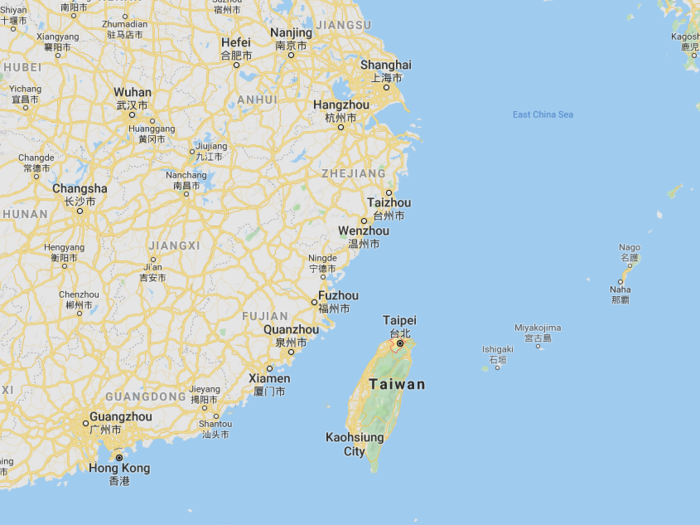
While China claims Taiwan as one of its own territories, Taiwan considers itself an independent democracy that champions human-rights issues.
Taiwan's parliament just became the first in Asia to legalize same-sex marriage.
The capital, Taipei, is a city of about 2.7 million people.
About 1,519 residents of Taipei own at least $30 million in assets, according to the report.
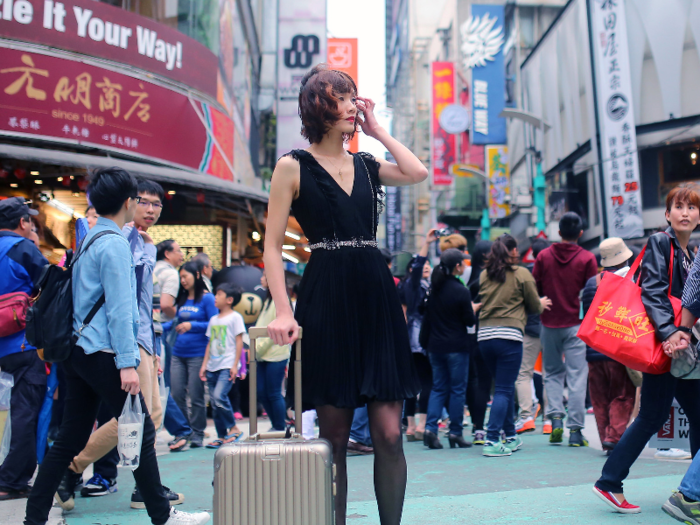
"Over the decades, Taiwan's booming exports, tech sector in particular, have enabled its entrepreneurs to accumulate a vast amount of fortune hidden in Taiwan and overseas," Chen told Business Insider.
The Xinyi district is one of the top neighborhoods in Taipei. Millionaires are buying up luxury properties there.
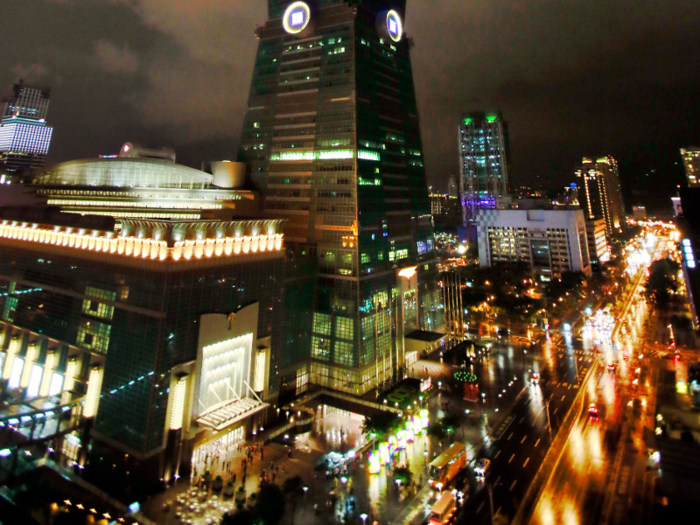
Xinyi, the city's financial hub, is a neighborhood of skyscrapers, luxury condominiums, and high-end restaurants and shopping.
It's also home to the Taipei 101 office tower, the tallest skyscraper in Taiwan and the ninth-tallest in the world at 1,667 feet.
"The Xinyi District, where the commercial center, symbolized by world-renowned 'Taipei 101,' is located, has been a popular neighborhood for new luxury residential developments," Kai Chen of Taiwan Sotheby's International Realty told Business Insider.
Xinyi is the premier shopping district of all Taiwan.
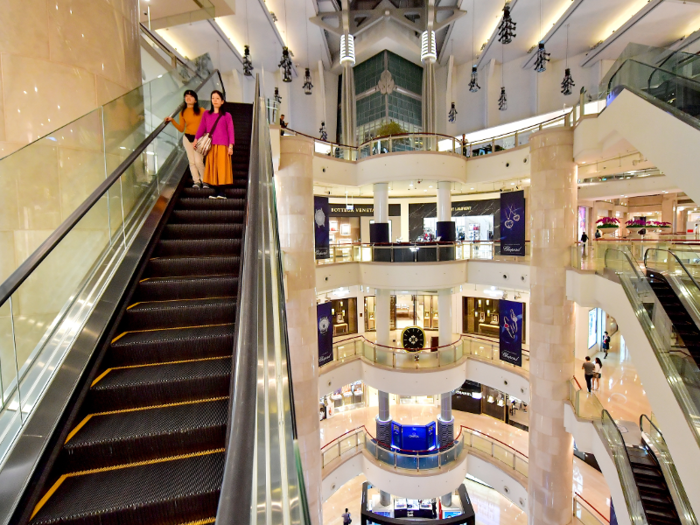
"[Xinyi] boasts the highest density for department stores in the world, with 14 shopping malls in an area of merely 1.53 million sq. m. (or 16.5 million sq. ft)," Chen said. "The area is expected to continue to attract many nouveaux riches homebuyers."
One of the most luxurious shopping centers in the neighborhood is in the Taipei 101 tower.
The seven-story mall includes luxury boutiques like Burberry, Bulgari, Louis Vuitton, Rolex, and Prada, as well as a gourmet food court and a luxury fitness center, World Gym Elite.
Luxury homes in Taipei are still relatively cheap compared to cities like Hong Kong, Singapore, and New York.
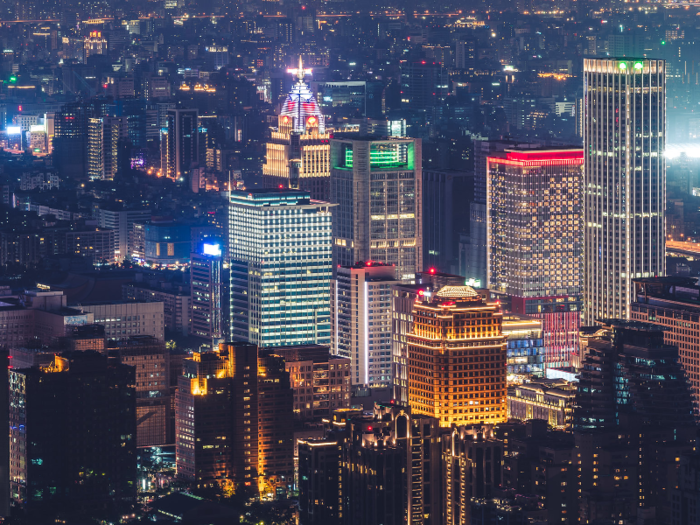
"Albeit following a remarkable bull market since 2009, Taipei's luxury properties are still a bargain compared to luxury homes in Hong Kong, Singapore and New York, where luxury homes can sometimes cost more than 1.5 times as much as in Taipei City," Chen said.
The prices of most luxury homes in Taipei range from $1,600 to $2,400 per square foot, as compared to an average of $3,500 per square foot in Singapore and $3,850 in Hong Kong, according to Chen. And in New York City, the average price per square foot for new developments has reached $3,786.
One of the most popular new condominium towers for Taipei's upper crust is One Park Taipei.
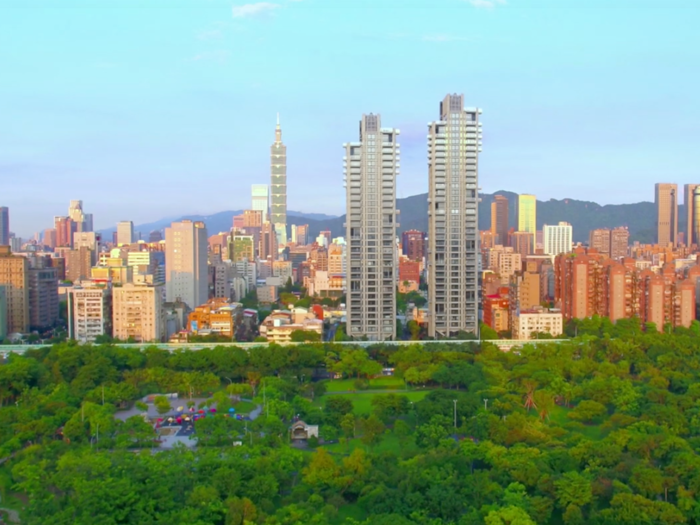
One Park Taipei is a two-tower development right next to Daan Forest Park, which Chen calls "Taipei's answer to NYC's Central Park." The tower has already set a record sale price on a per square foot basis in Taiwan, Chen says.
Then there's the Sherwood Fubon, managed by the Marriott Hotel, which sold 31 condos just last year, according to Chen.
But while Xinyi and its upscale condos may be today's hottest real-estate hot spot, Taipei's "old money" tend to prefer living in luxury villas in a quieter neighborhood.
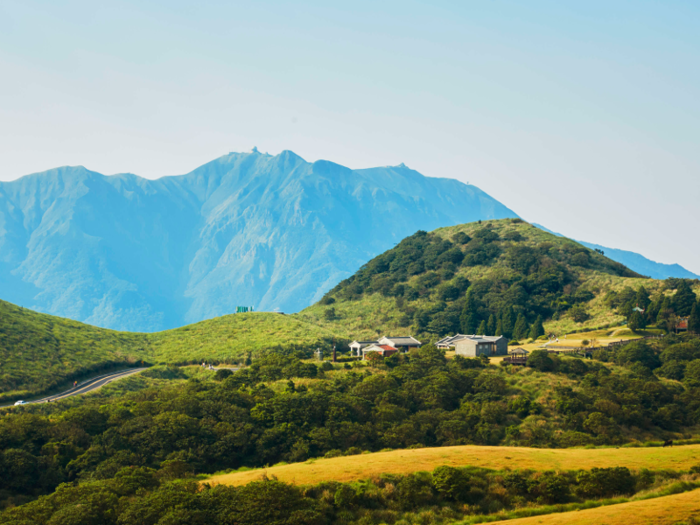
"For affluent old-money families who prefer a more tranquil community and lifestyle, Yangmingshan, 'The Sun-Light-Mountain,' has long been a top choice," Chen told Business Insider. "
Yangmingshan, with nearby Yangmingshan National Park, is only about a 25- to 30-minute drive to Taipei city proper. It's known for its green and picturesque surroundings, according to Chen.
"Yangmingshan and nearby Tianmu community (the 'expat ghetto') are home to many luxury villas occupied by some of Taiwan's wealthiest old-generation of entrepreneurs," Chen said.
But Taipei's richest residents may not bother to choose between the two neighborhoods. In Taiwan, the ultra-wealthy own an average of 5.4 homes each.
According to Chen, "Taiwanese families will hoard properties when the opportunity presents itself, and not just within Taipei: property investment is basically an addiction!"
While the number of millionaires Taipei may be booming, the Taiwanese ultra-rich are not flashy with their wealth.
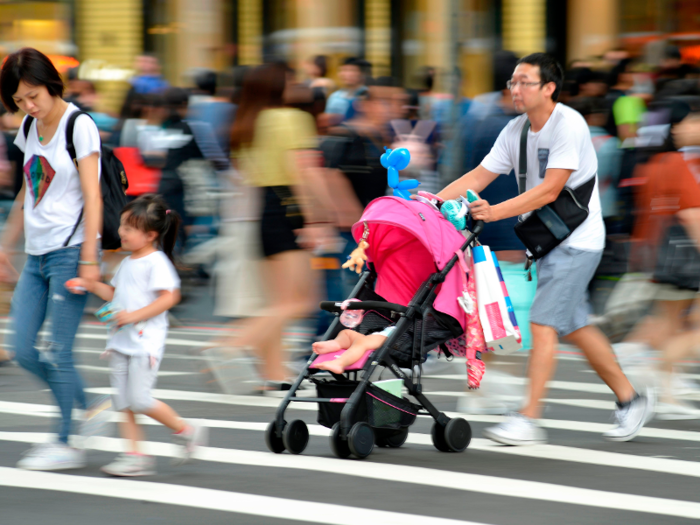
Many of Taiwan's wealthiest prefer "a modest and low-profile lifestyle," according to Chen, embracing the Chinese virtues of humility as embodied in Confucianism.
"Unlike their counterparts in 'Crazy Rich Asians,' whilst enjoying shopping for jewelries and luxury goods discreetly, as well as fine-dining, rich Taiwanese are less conspicuous in their approach to consumption," Chen said.
Wealthy Taiwanese prefer to do their shopping in private.
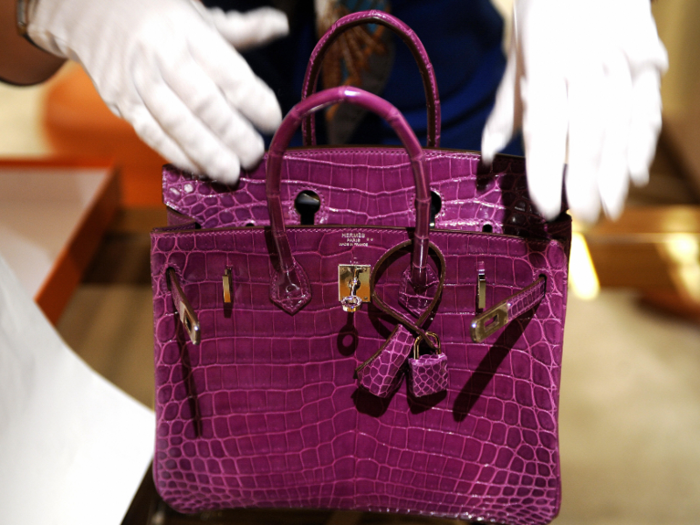
Annie Leung, chairman of Bellavita, a luxury mall in Taipei that has a VIP club with private fitting rooms, told Bloomberg that the Hermès store gives shoppers plain brown bags to carry out their goods.
"They don't want to have an obvious orange bag on the street," Leung told Bloomberg. "High-end consumers like to spend their money, but they don't always like to be seen."
But Taipei's rich do enjoy their fine dining.
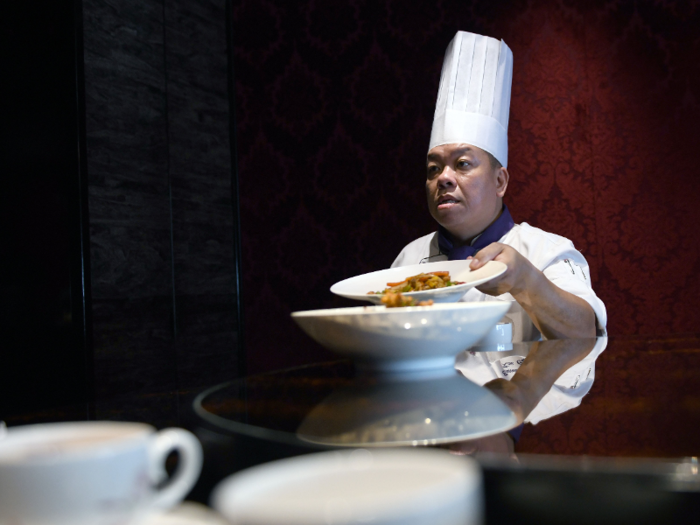
The city has become one of the top fine-dining destinations in Asia, boasting 24 Michelin-starred restaurants in only the second edition of the Taipei Michelin Guide.
Rather than living extravagant lifestyles, wealthy Taiwanese are obsessed with having a strong work ethic.
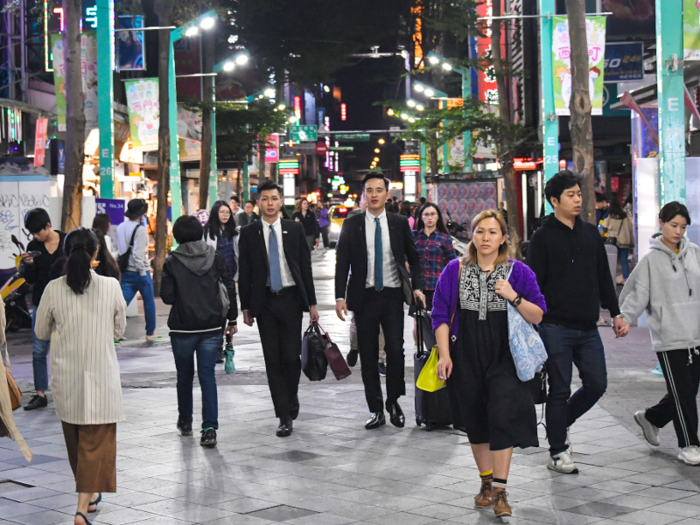
Chen describes the mindset of Taipei's upper class as "Work! Work! Work Harder!"
Wealthy Taiwanese are industrious and highly competitive, according to Chen.
"They spend most of their time and energy managing and expanding their businesses, instead of adopting an extravagant or self-indulgent lifestyle," Chen said. "They also value the importance of education and raising their children the 'right' way, setting themselves a fine example of work ethics for their children. They are also well-connected with each other and leverage their network to explore and exploit business opportunities."
Popular Right Now
Popular Keywords
Advertisement